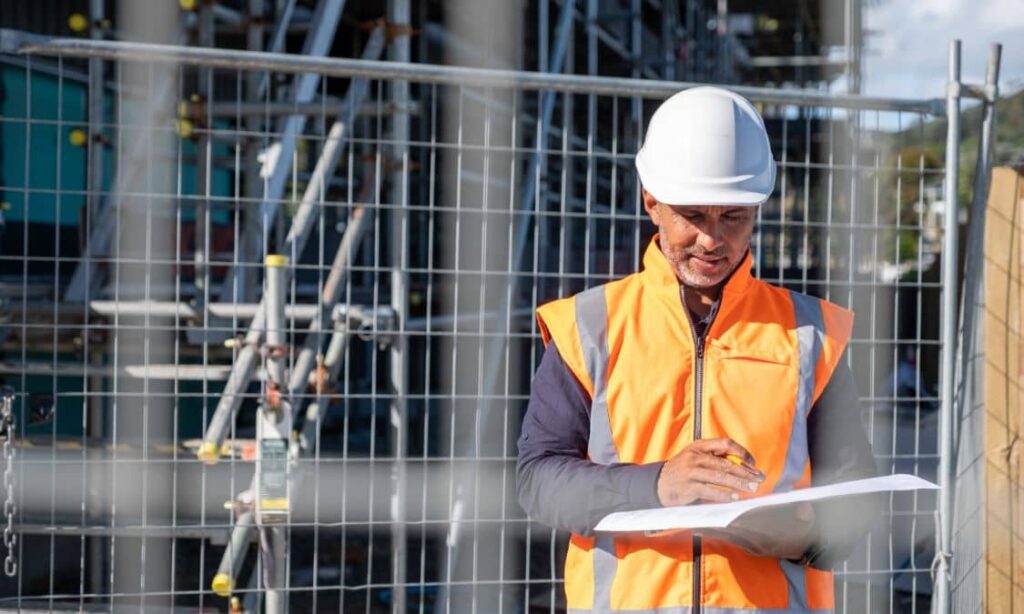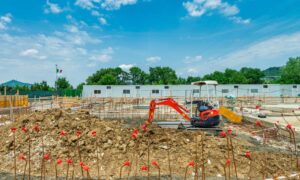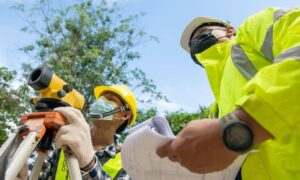
Structural engineering is a branch of civil engineering that focuses on designing the “bones” of buildings and structures. The main goal is to make sure everything built—like houses, bridges, or tall buildings—is strong, safe, and able to handle stress from weight, wind, or even natural disasters.
Structural engineers study things like how much weight a structure can hold, what materials are best to use, and how the environment might affect a building. Their work helps keep everything from homes to skyscrapers standing safely for years.
What Do Structural Engineers Do on a Project?
A structural engineer works with architects, contractors, and other professionals to make sure the building is built correctly and safely. Their job often includes:
- Creating detailed plans and blueprints
- Checking the condition of the land or soil
- Choosing the right materials for strength and safety
- Calculating loads and stress levels
- Performing inspections before, during, and after construction
Their input helps prevent accidents, keeps costs down, and ensures buildings meet all safety laws and codes.
Why Is Structural Engineering Important in Dallas?
Fast Growth and Unique Building Challenges
Dallas is growing quickly, with lots of new houses, apartments, offices, and industrial buildings popping up. Because of this fast growth, there’s a big need for skilled structural engineers who can design buildings that are safe, flexible, and meet local rules.
Dallas has special challenges too. The area has expansive clay soil, which can shift and crack foundations. Engineers must also consider high winds and seasonal storms when designing buildings.
City Codes and Construction Rules
In Dallas, structural engineers must follow important codes like:
- Dallas Building Code
- International Building Code (IBC)
- Texas-specific structural safety rules
If a building doesn’t follow these rules, the owner might face delays, fines, or serious safety issues.
What Services Do Structural Engineers Offer in Dallas?
For Homes (Residential)
Engineers work on:
- Removing or adjusting load-bearing walls
- Checking and fixing foundations
- Roof framing and attic conversions
- Retaining wall design
For Businesses (Commercial/Industrial)
Engineers help with:
- Designing structures for malls, offices, hospitals, and warehouses
- Supporting heavy machinery
- Creating strong multi-story buildings
Inspections and Assessments
- Pre-purchase checks
- Damage reports after storms
- Routine inspections for older properties
Retrofits and Renovations
If a building is outdated or needs to be repurposed, engineers help with:
- Reinforcing old beams and columns
- Upgrading materials for modern use
- Increasing load capacity
- Making sure upgrades meet code
Specialized Structural Services in Dallas
Seismic Retrofitting
Dallas isn’t known for earthquakes, but small ones do happen. Retrofitting makes buildings stronger in case of future ground movement.
Foundation Design
Because Dallas has clay-rich soil, foundation design is critical. Engineers often use:
- Pier-and-beam foundations
- Concrete slabs
- Deep piers for added stability
Load-Bearing Analysis
Before removing walls or changing layouts, engineers identify which parts of the building support its weight. This is especially useful in remodels or open-concept designs.
How Much Do Structural Engineering Services Cost in Dallas?
Price Estimates by Service
| Service Type | Typical Cost |
| Basic Home Inspection | $300 – $600 |
| Residential Structural Design | $1,000 – $3,000 |
| Commercial Building Plans | $5,000 – $15,000+ |
| Foundation Design & Analysis | $500 – $1,500 |
| Retrofitting Plans | $2,000 – $7,500 |
Extra Costs You Might Not Expect
- Soil testing
- Permit fees
- Travel time
- Emergency consultations
It’s best to ask for a detailed quote before you hire anyone.
How to Hire the Right Structural Engineer in Dallas
Licensing and Qualifications
In Texas, engineers must have a license from the Texas Board of Professional Engineers and Land Surveyors (TBPELS). Make sure your engineer:
- Is properly licensed (PE status)
- Has experience in the kind of project you need
- Keeps up with education and training
Questions to Ask
- Have you worked on similar projects before?
- Are you familiar with local codes?
- Can you show past work or references?
- Do you help with permits?
- What’s your timeline?
Warning Signs to Avoid
- No license
- No clear pricing
- No written agreement
- Poor communication
- Pressure to sign quickly
Always choose an engineer who’s honest, qualified, and easy to reach.
Where to Find Good Structural Engineers in Dallas
Online Sites
- Google Maps or Yelp
- HomeAdvisor
- Thumbtack
- Angie’s List
Local Engineering Groups
- Texas Society of Professional Engineers (TSPE)
- Dallas chapter of the American Society of Civil Engineers (ASCE)
Ask for Referrals
Contractors and architects often have great connections with trusted engineers. Ask them who they recommend.
Real-World Examples: Successful Projects in Dallas
Residential Projects
In neighborhoods like Highland Park, engineers helped modernize historic homes by redesigning layouts without losing structural safety. For example, one firm reinforced ceiling joists and analyzed the foundation before allowing a homeowner to open up living spaces with fewer walls.
In Plano and Frisco, structural engineers regularly inspect homes for cracks caused by shifting soil. Their evaluations help homeowners decide whether repairs or full foundation work is needed.
Commercial Buildings and Skyscrapers
In Victory Park, structural engineers were involved in constructing a 20-story mixed-use tower. Their work included:
- Designing steel frames to support multiple floors
- Using reinforced concrete to add durability
- Adding wind bracing systems for extra protection during Texas storms
This type of expertise ensures big projects are finished on time, safely, and under budget.
Following Laws and Building Safely
Texas Engineering Practice Act
All structural engineers in Dallas must follow the rules in the Texas Engineering Practice Act. These rules make sure engineers:
- Stay licensed and updated on training
- Follow ethical practices
- Put public safety first
If someone calls themselves an engineer without a license, they can face fines or even legal action.
Dallas Building Permits
Before you start a project, the Dallas Development Services Department must approve the plans. A licensed engineer can help with:
- Submitting drawings and calculations
- Getting foundation or site permits
- Passing inspections
This saves you time and avoids problems down the road.
New Trends in Dallas Structural Engineering
Green Building and Sustainability
Many Dallas engineers now design buildings that are eco-friendly. Some features include:
- Solar panel-ready roofs
- Green roofs that reduce heat
- Recycled or low-impact materials
- Water-saving designs
Sustainable buildings are not just better for the planet—they also save money over time.
Tech Tools: AI and 3D Software
Engineers in Dallas use high-tech tools like:
- AutoCAD Civil 3D
- ETABS
- Revit Structure
These tools let them test a building’s strength before it’s built. AI helps with inspections, finding hidden cracks or weaknesses faster than the human eye.
Frequently Asked Questions
1. How long does a structural project take in Dallas?
Small jobs like inspections can take 1–2 weeks. Bigger jobs like commercial designs may take several months depending on permits and complexity.
2. Do I need an engineer for home upgrades?
Yes—especially if your upgrade affects walls, foundations, or support beams. An engineer ensures it’s safe and meets code.
3. How can I check if an engineer is licensed?
Use this official Texas website: https://pels.texas.gov
4. Will an engineer help with permits?
Most engineers will help prepare and submit permit applications, drawings, and structural reports.
5. What’s the difference between a structural and civil engineer?
A civil engineer works on roads, bridges, and infrastructure. A structural engineer focuses on the strength and stability of buildings.
6. Are online consultations available?
Yes! Many engineers in Dallas now offer virtual meetings and video inspections, especially for planning and advice.
Your Next Steps Toward a Safer, Stronger Structure
Structural engineering in Dallas is more than just technical drawings—it’s about building safely, smartly, and for the long haul. Whether you’re updating a single-family home or building a new office tower, choosing the right structural engineer makes all the difference.
Start by:
- Knowing your project goals
- Researching local experts
- Asking the right questions
- Checking licenses and past work




